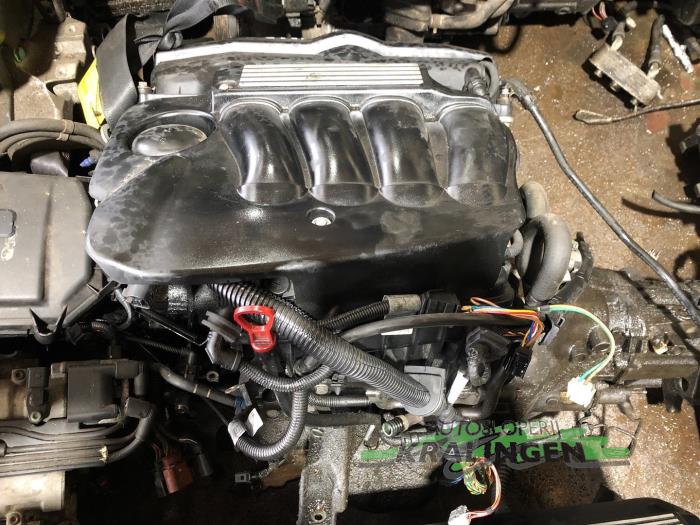BMW 318ti Testimonial: What Makes This Design Stand Apart
BMW 318ti Testimonial: What Makes This Design Stand Apart
Blog Article
Important Factors To Consider for Selecting the most effective Engine for Your Requirements
In the realm of selecting the excellent engine to fulfill your needs, a number of vital variables demand precise consideration to make certain optimum performance and efficiency. From the nuanced balance in between power and efficiency to the often-overlooked aspects of upkeep and solution requirements, each element plays a critical function in figuring out the most appropriate engine for your particular demands. As the complexity of engine innovations remains to progress, discerning one of the most fitting alternative demands a deep understanding of the interplay in between different considerations. By exploring the detailed web of variables that underpin this decision-making process, a clearer course emerges in the direction of selecting an engine that not only satisfies yet surpasses your expectations.
Power and Performance
When assessing engines for optimum performance, it is critical to prioritize both power output and efficiency. Performance refers to how well the engine converts fuel right into functional energy. By carefully reviewing both power and performance, you can pick an engine that delivers optimum efficiency and fulfills your requirements effectively.
Gas Effectiveness and Economy
Gas efficiency refers to the engine's capacity to convert fuel right into power with marginal waste, directly influencing operating prices and environmental sustainability. Engines with higher fuel performance not just decrease fuel expenses but additionally decrease carbon discharges, contributing to a greener operation.

Compatibility and Application
Considering the gas effectiveness and economy of an engine, the following important facet to address is its compatibility and application within certain functional contexts. Compatibility refers to exactly how well the engine incorporates with the total system or equipment it powers.
Different engines are created for certain functions, whether it be industrial equipment, marine vessels, cars, or power generators. Understanding the desired application allows for the choice of an engine that can deliver the needed power output, torque, and functional features.
Maintenance and Solution Demands
Maintenance and solution requirements play a vital duty in ensuring the longevity and optimal efficiency of an engine. Regular upkeep is important to avoid failures, prolong the life-span of the engine, and keep its efficiency. When choosing an engine, it is vital to consider the producer's advised maintenance timetable and go the schedule of service facilities or certified service technicians.
Factors such as the regularity of oil changes, filter substitutes, and general examinations can considerably influence the engine's performance. Some engines might need more constant maintenance based upon their style and use, while others might Our site have longer periods between upkeep checks. It is important to abide by these solution demands to stay clear of costly repairs and unexpected downtime.

Expense and Budget Plan Factors To Consider
When picking an engine for a particular application,Budget plan constraints typically play a substantial function in the decision-making procedure. When thinking about the price and budget plan ramifications of choosing an engine, it is necessary to analyze not only the preliminary purchase cost yet additionally the lasting costs connected with upkeep, gas intake, and potential upgrades or repair work. It is crucial to strike a balance in between the upfront expense of the engine and its general lifecycle costs to ensure that the chosen engine remains monetarily sustainable throughout its functional life expectancy.
Factors such as fuel sturdiness, effectiveness, and integrity can straight influence the complete expense of ownership of an engine. While an extra pricey engine might have greater upfront costs, it can possibly result Check Out Your URL in lower upkeep and fuel expenses over time, therefore supplying better worth in the lengthy run.
Final Thought

Fuel efficiency refers to the engine's capability to convert fuel into power with marginal waste, straight influencing operating costs and environmental sustainability.Aspects affecting fuel performance include engine design, combustion performance, and total efficiency optimization. Furthermore, selecting the suitable gas type and quality as advised by the engine producer can additionally improve efficiency and extend engine life-span.
Engines with excellent utility attributes and conveniently offered parts can reduce maintenance costs and minimize the time the engine is out of procedure - bmw 318ti. It is crucial to strike a balance in between the in advance cost of the engine and its total lifecycle costs to guarantee that the chosen engine remains financially lasting throughout its operational life expectancy
Report this page